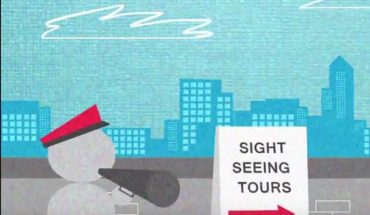How to have a mindful New Year: If you are dreading going back to the pressures of work after the Christmas holidays “mindfulness” – paying more attention to the present moment can help you deal with the stress and feel happier and more positive in 2021. We often race through life forgetting to pay attention to our own thoughts and feelings and the world around us and soon yet another year has flown past. Here are some simple ways to develop mindfulness in your everyday life and feel happier and more grounded.
Mindfulness can help us enjoy life more
Professor Mark Williams, one of the pioneers of mindfulness-based cognitive therapy in the UK has said that an important part of mindfulness is reconnecting with our bodies and the sensations they experience. Mindful living can improve our mental and physical health by helping us understand ourselves better and develop a more positive outlook.
Set aside time
Many people find it difficult to still their minds and become more aware of the present moment and stream of thoughts, bodily sensations and feelings – as fear and anxiety begins flooding in. Set aside five minutes every day to sit silently and observe your thoughts, emotions and what is going on inside your body. Some people find it easier to still their minds when they are walking.
Observe your thoughts
Look for patterns in your thoughts to help unravel your worries and name them: “Have I filled out my tax return correctly.” – This is anxiety.
Reconnect to the sights and sounds and around you
Try to notice the world around you more – it can be as simple as the sound and smell of rain, or wind blowing through leaves, a full moon, or the blueish light when snow is in the air. Whilst walking to work listen for different sounds, such as birdsong, or children playing and watch the birds flying across the sky. Vary your route from time to time to help you see things afresh.
Yoga and tai-chi can help
Yoga and tai-chi can help your develop breathing and relaxation techniques
Light candles
Celebrate the coming spring and longer days by lighting candles, which can bring a warm, welcoming glow to your surroundings and stillness to your mind.
Bathtime
Add a few drops of calming essential oils, such as rose, geranium or lavender to your bath if you are relaxing after a hard day’s work. If you’re running a bath during the day, try jasmine, which is sensuous and enervating.
Milky Oats
If you are having problems sleeping try drinking chamomile tea an hour before you turn in. or Ashwagandha, (also known as winter cherry and Indian ginseng), a herb used for over 2,500 years in Ayurvedic medicine to help relaxation and ease stress and depression. Alternatively try a cupful of milky porridge with a spoon of honey close to bedtime, as oats contain amino acids, helping you produce melatonin which can make you sleep.
Try something new
If you feel blue because Christmas festivity now seem far away and there seems to be nothing exciting to look forward to, its time to challenge yourself with a new hobby or interest, such as learning to play a musical instrument, painting, a cooking course, or learning a craft like making wire jewellery. Being creative helps you be aware of your thoughts and feelings and what is important to you.
Satisfaction is better than happiness
Contrary to what you might think happiness is not our ultimate goal. Influenced by the Greek philosopher Aristotle, Daniel Kahneman, professor emeritus at Princeton University, a leading researcher into happiness changed course after he suspected that humans desired satisfaction more than happiness. For instance, you may be planning your summer holiday in the anticipation of cherishing happy memories, as much as for the enjoyment at the time. This may partly explain why skiing holidays, which sometimes involve queuing for ski lifts in freezing temperatures are as popular as less challenging sunny get-aways in the Caribbean, or Canary Islands.
Mindfulness is recommended by the National Institute for Health and Care Excellence (NICE) as a way to deal with depression in people who have suffered bouts of it.
- Fenella Fielding – Onstage, Offstage - 3rd November 2025
- ‘Trains of Thought: A Natural History of the Mind’ Review - 12th September 2025
- People’s Choice Victory for Down’s Syndrome Scotland Garden at Chelsea 2025 - 28th May 2025








Nice suggestions but have you tried these all or some upon yourself. If yes then please do mention that as that inspires the readers very much to do what you wish them to do. Regards.